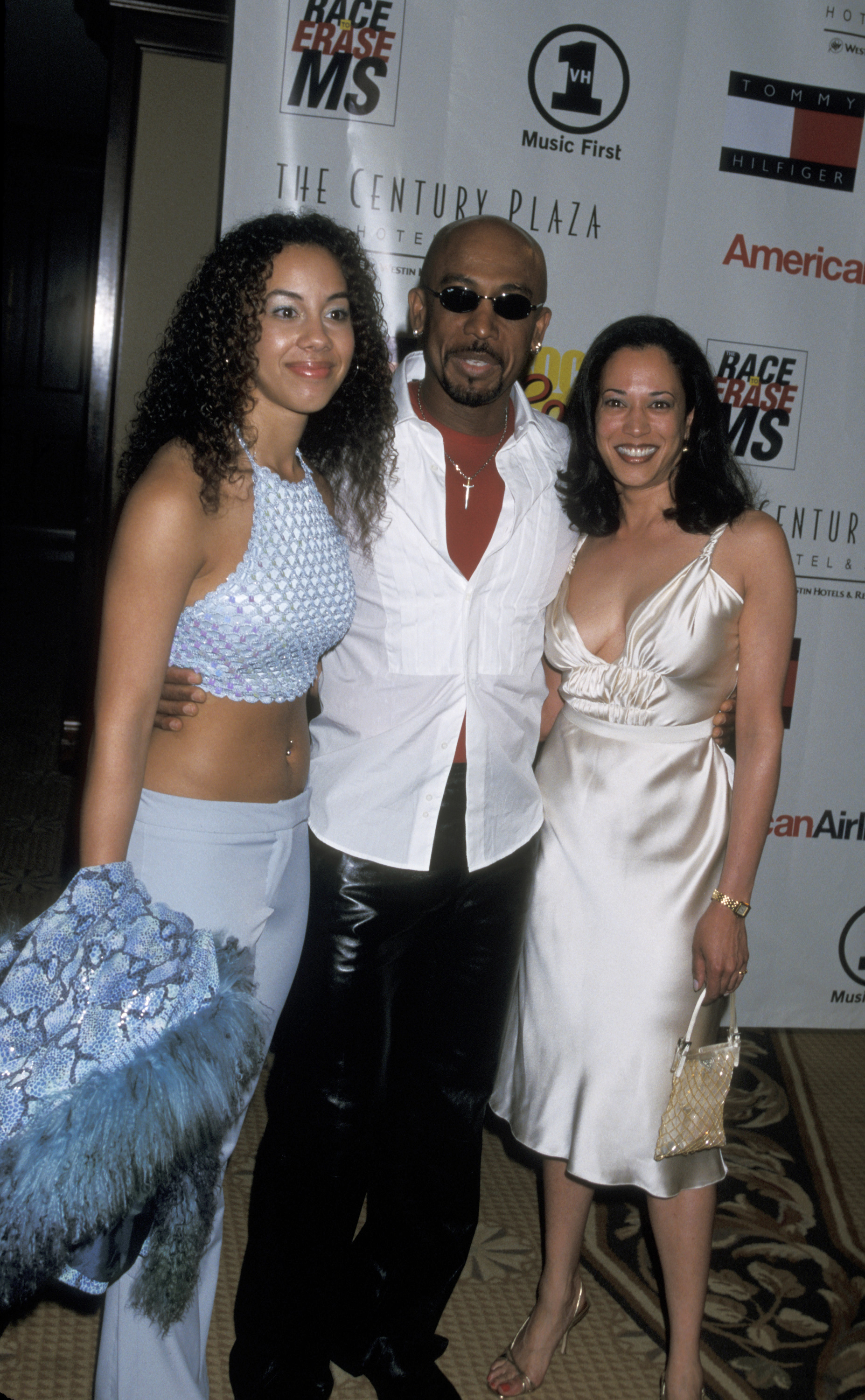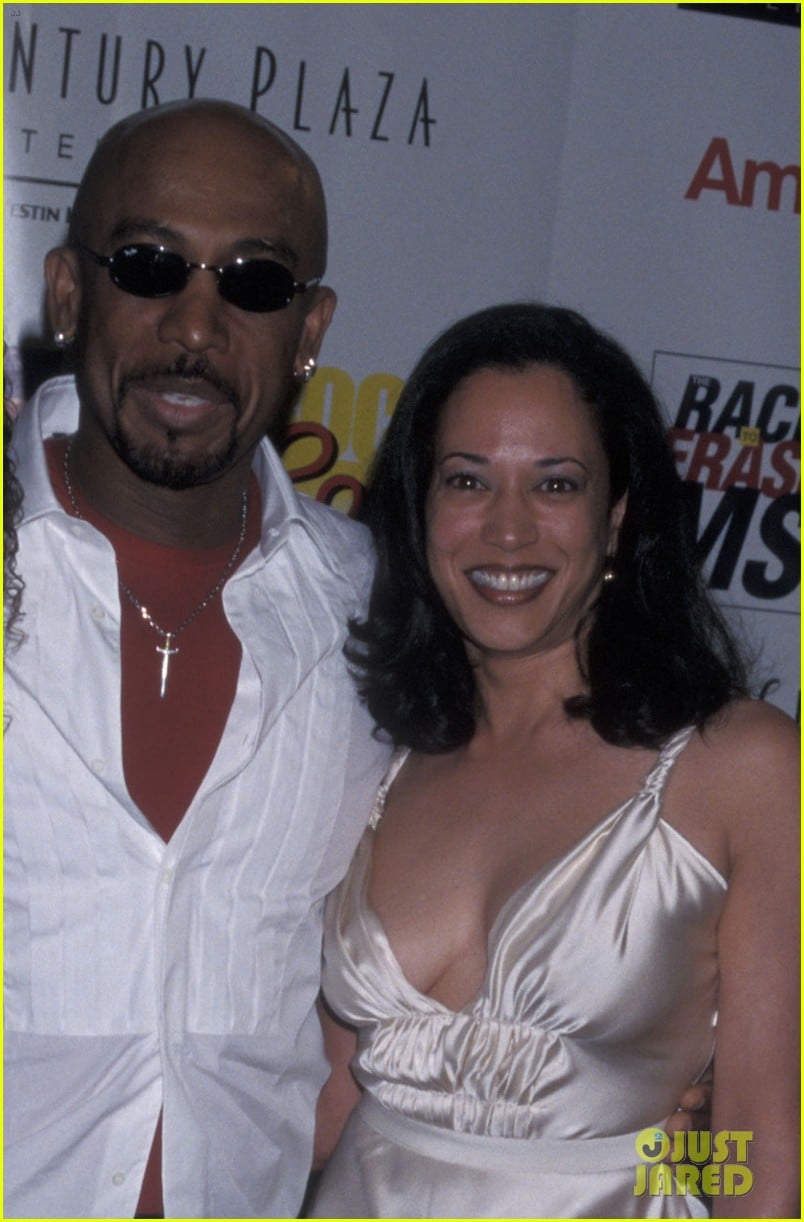In an era where politics often seems divided, the collaboration and friendship between Kamala Harris and Montel Williams serves as a refreshing reminder of what can be achieved when two influential figures come together for the common good. As the first female Vice President of the United States, Kamala Harris has paved her way in a traditionally male-dominated arena. On the other hand, Montel Williams, a former talk show host and advocate for multiple sclerosis awareness, has made significant strides in promoting health issues and social justice. Their paths may seem divergent, but their commitment to uplifting voices and advocating for change resonates deeply.
Both Kamala Harris and Montel Williams have used their platforms to bring attention to critical issues affecting marginalized communities. While Harris has fought for criminal justice reform and healthcare access, Williams has championed mental health awareness and disability rights. Their shared values of resilience, empowerment, and advocacy make their partnership noteworthy. Together, they not only inspire individuals but also serve as a beacon of hope in a world that often feels disconnected.
As we delve deeper into the relationship between Kamala Harris and Montel Williams, it is essential to explore their individual backgrounds, the causes they are passionate about, and how they have influenced each other's work. This exploration will shed light on how their collaboration has the potential to inspire others to engage in meaningful conversations and actions for societal change.
What is Kamala Harris's Background?
Kamala Harris was born on October 20, 1964, in Oakland, California. She is the daughter of immigrant parents: her mother, Shyamala Gopalan, was a breast cancer researcher from India, and her father, Donald Harris, is a Jamaican economist. Kamala attended Howard University and earned her law degree from the University of California, Hastings College of the Law. Before entering politics, she worked as a prosecutor and served as the Attorney General of California. Her ascent to the vice presidency marked a historic milestone as she became the first woman, the first Black woman, and the first person of South Asian descent to hold the office.
What About Montel Williams's Journey?
Montel Williams was born on July 3, 1956, in Baltimore, Maryland. He is a notable television personality, actor, and advocate for various health causes. Williams served in the United States Navy and later earned a degree in psychology from the University of Maryland. He gained fame as the host of "The Montel Williams Show," which aired for 17 years and addressed various social issues. Williams is also known for his advocacy work surrounding multiple sclerosis, a condition he has battled since his diagnosis in 1999.
What Are Their Key Achievements?
Both Kamala Harris and Montel Williams have made significant contributions in their respective fields:
- Kamala Harris:
- First female Vice President of the United States
- Advocate for criminal justice reform
- Promoter of healthcare reform and access
- Montel Williams:
- Emmy Award-winning television host
- Advocate for mental health and disability rights
- Author and speaker on wellness and wellness education
How Did Kamala Harris and Montel Williams Meet?
Their first encounter occurred at a charity event focused on health awareness, where both were speakers. They bonded over their shared commitment to advocating for individuals with health challenges, particularly the importance of mental health awareness. This initial meeting paved the way for a friendship grounded in mutual respect and admiration for each other's work.
What Initiatives Have They Collaborated On?
Kamala Harris and Montel Williams have partnered on several initiatives aimed at addressing health disparities and promoting social justice:
- Health Awareness Campaigns: They have collaborated on campaigns that focus on mental health and the importance of early diagnosis, particularly for chronic illnesses.
- Advocacy for Legislation: Both have actively supported legislation that aims to improve access to healthcare for marginalized communities.
- Public Speaking Engagements: They have participated in various forums and panels discussing the intersection of health, policy, and social justice.
What Impact Have They Made Together?
Their partnership has significantly raised awareness about the importance of mental health and the challenges faced by individuals living with chronic illnesses. By utilizing their platforms, they have encouraged open conversations about these topics and inspired others to advocate for change. Their efforts have contributed to a broader understanding of health disparities and the need for equitable healthcare access.
How Do Their Personal Values Align?
Kamala Harris and Montel Williams share core values that guide their work and personal lives:
- Empowerment: Both prioritize empowering individuals, particularly those from underrepresented communities.
- Advocacy: They are committed advocates for social change, particularly in health and justice reform.
- Resilience: Their personal stories of overcoming challenges serve as inspiration for many.
What Lessons Can We Learn from Their Relationship?
The friendship and collaboration between Kamala Harris and Montel Williams remind us of the power of unity in advocacy. Their partnership illustrates that when individuals come together for a common cause, they can create meaningful change. Additionally, it highlights the importance of supporting one another in the pursuit of social justice and health equity.
What Does the Future Hold for Kamala Harris and Montel Williams?
As both continue their advocacy work, it is likely that their collaboration will evolve. With ongoing challenges related to healthcare, social justice, and mental health, their combined efforts will remain crucial in addressing these issues. Their friendship serves as a testament to the importance of solidarity in the fight for equality and justice.
In conclusion, the dynamic between Kamala Harris and Montel Williams exemplifies the power of collaboration in advocacy. Their shared experiences, values, and commitment to social change create a narrative that inspires many. As they continue to work together, their influence will undoubtedly resonate for years to come, making a lasting impact on the landscape of advocacy and social justice.



